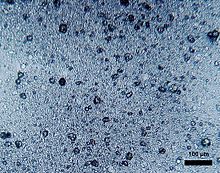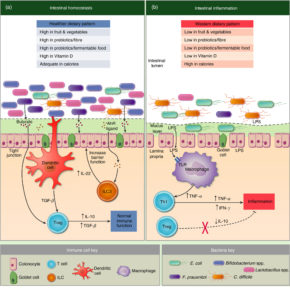![]() Studies finding health effects from BPA keep appearing. BPA (bisphenol-A) is a chemical used in many everyday products (e.g. the lining of soda and food cans, store receipts) and so almost all humans are exposed to it daily. Researchers are getting increasingly worried about BPA and related chemicals (including substitutes for BPA such as BPS) because they are endocrine (hormone) disruptors with health effects in humans and animals. This chemical is so widely used that more than 7 billion metric tons of it are produced annually throughout the world.
Studies finding health effects from BPA keep appearing. BPA (bisphenol-A) is a chemical used in many everyday products (e.g. the lining of soda and food cans, store receipts) and so almost all humans are exposed to it daily. Researchers are getting increasingly worried about BPA and related chemicals (including substitutes for BPA such as BPS) because they are endocrine (hormone) disruptors with health effects in humans and animals. This chemical is so widely used that more than 7 billion metric tons of it are produced annually throughout the world.
Unfortunately the US government keeps agreeing with the chemical industry that the chemical is "safe", and disregarding the results of studies finding health effects (reproductive effects, obesity, etc). Of course the chemical industry is fighting tooth and nail to discredit studies done by independent researchers - a lot of money is at stake.
The following are excerpts from an article describing the latest study finding health effects from low dose exposure from BPA - it altered the amount of insulin released by the person (and so perhaps influencing the development of type 2 diabetes). What was worrisome is that the dose is considered "safe" by the US government - and in the study people were exposed to it once, while in real life humans are exposed to such doses multiple times daily.
The good news is that BPA is excreted within a day, but the bad news is that we the keep being exposed to it. By the way, substitutes for BPA (such as BPS) are just as bad, and are also endocrine disruptors - after all, they're all related chemically. So buying BPA-free canned food or plastic won't help a person avoid endocrine disruptors - these also leach into food. From an article written by Lynn Peeples at Environmental Health News:
In a scientific first, researchers gave people BPA — and saw a link to precursor of type 2 diabetes
In a scientific first, researchers gave people BPA — and saw a link to precursor of type 2 diabetes. The controversial study suggests that BPA exposure deemed safe by the feds could alter the amount of insulin released and elevate people's type 2 diabetes risk.
A first-of-its-kind study of a small group of people exposed to a very small amount of bisphenol-A (BPA) is raising questions about the federal government's stance that low doses of the common chemical are safe — as well as the ethics of conducting such an experiment on humans.
...continue reading "Exposure to BPA Has An Effect on Insulin Levels"

 The following article in a popular magazine
The following article in a popular magazine  Lately there has been discussion about "
Lately there has been discussion about "
 Nice study that explains why sitting for long periods is so unhealthy - it reduces blood flow to the brain (cerebral blood flow) . The results from
Nice study that explains why sitting for long periods is so unhealthy - it reduces blood flow to the brain (cerebral blood flow) . The results from  The controversy over the pesticide Roundup and glyphosate (which is the active ingredient in Roundup) rages on. This week the
The controversy over the pesticide Roundup and glyphosate (which is the active ingredient in Roundup) rages on. This week the  Two recent studies caught my eye – both reviews of scientific research that looked at the issue of diet and whether it contributes to the development of Intestinal Bowel Disease (IBD), specifically Crohn’s disease and ulcerative colitis. These are chronic inflammatory disorders of the gastrointestinal tract, and which are rapidly increasing in developed countries (over 1 million individuals in the US). The main question is: Does a person’s diet contribute to the development of IBD?
Two recent studies caught my eye – both reviews of scientific research that looked at the issue of diet and whether it contributes to the development of Intestinal Bowel Disease (IBD), specifically Crohn’s disease and ulcerative colitis. These are chronic inflammatory disorders of the gastrointestinal tract, and which are rapidly increasing in developed countries (over 1 million individuals in the US). The main question is: Does a person’s diet contribute to the development of IBD?
 This latest research about the type of men's underwear (boxers vs briefs or other tight underwear) and sperm quantity was surprising. Didn't we all learn this years, even decades, ago? A recent
This latest research about the type of men's underwear (boxers vs briefs or other tight underwear) and sperm quantity was surprising. Didn't we all learn this years, even decades, ago? A recent